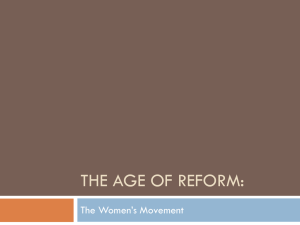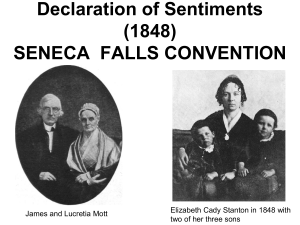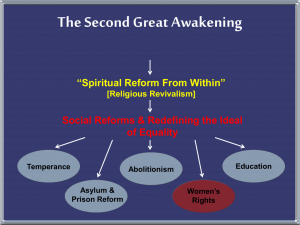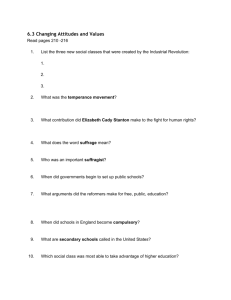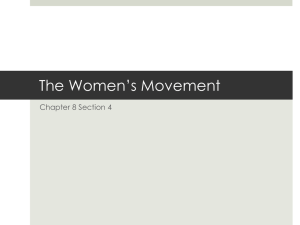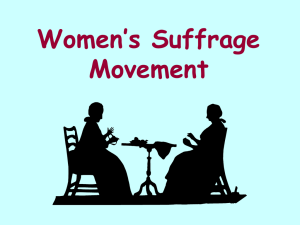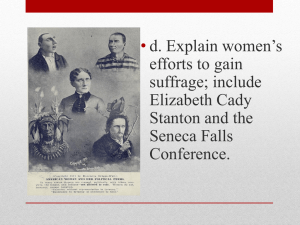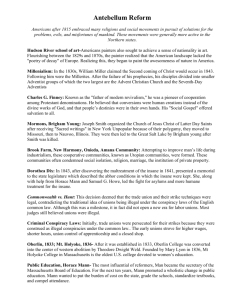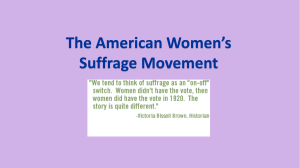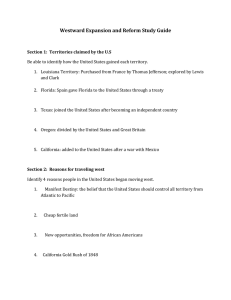12.3 powerpoint
advertisement
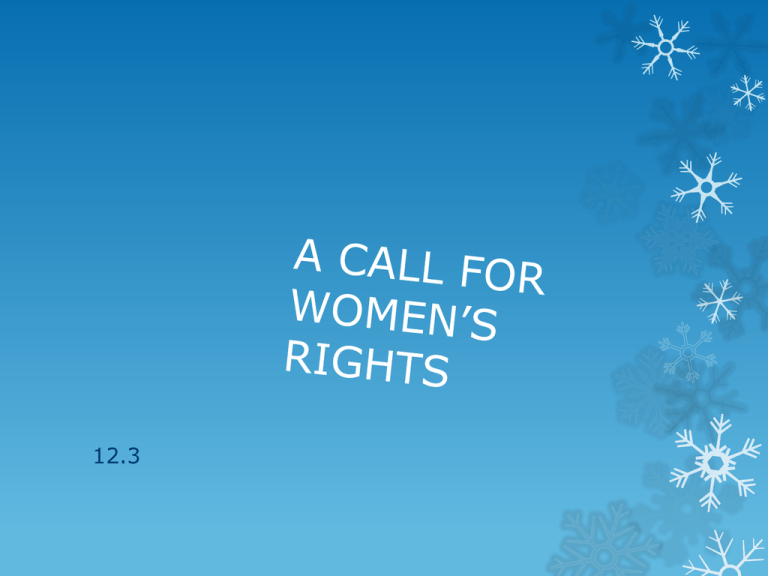
12.3 Women participated in Abolition movement recognized they had no rights themselves In 1820, women could not: vote, serve on jury, attend college, work in medical field. Married women could not keep their own wages or their own property. They could not do any type of business transactions like banking. Women’s place was their own private world of home. People to know in the Women’s Rights Movement Elizabeth Cady Stanton Lucretia Mott Susan B. Anthony: Temperance and Abolitionist Emma Willard: Train women as teachers & teach math and science Mary Lyon: Mount Holyoke Female Seminary Elizabeth Blackwell: First medical doctor Vocabulary Suffrage: The right to vote Feminist: People who work for women’s rights Coeducation: Teaching of boys and girls together. Lucretia Mott Quaker Great public speaker Elizabeth Cady Stanton Advocate for the Abolition Movement Denied access to Anti-slavery conference in London Recognized that women did not have rights either Mott and Stanton call for a convention to discuss women’s rights. Held at Seneca Falls, New York Page 428: Stanton calls to be recognized as free as men Call for Suffrage The right of women to vote is suffrage Suffrage for women was very controversial. Why? The Conference inspired the need for education for women Education for Women Women’s Rights movement focused on education 1821 Emma Willard started a girl academy to focus on education Mary Lyon opened Mount Holyoke Female Seminary in Massachusetts: taught Latin, Geometry and Chemistry. This is considered first college for women in America New Careers Teachers Journalist :Margaret Fuller who wrote Women in the Nineteenth Century. Doctors: Elizabeth Blackwell graduated first in her class fram an American medical school. Astronomer: Maria Mitchell Great strides for women in the 1800’s, however women did not get the right to vote until the 19 amendment was ratified in 1920 Seneca Falls Convention Declaration of Sentiments When, in the course of human events, it becomes necessary for one portion of the family of man to assume among the people of the earth a position different from that which they have hitherto occupied, but one to which the laws of nature and of nature’s God entitle them, a decent respect to the opinions of mankind requires that they should declare the causes that impel them to such a course.
